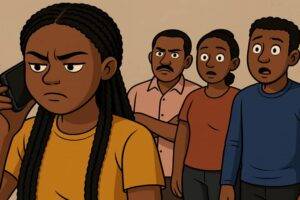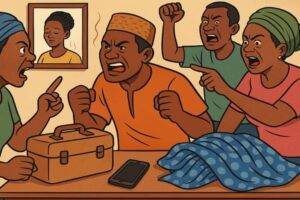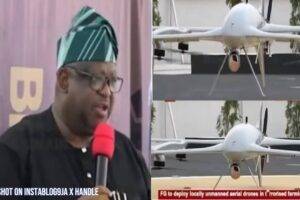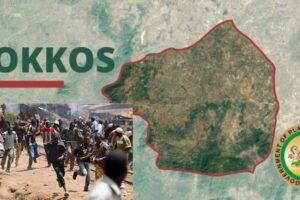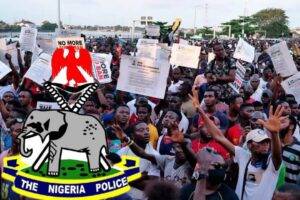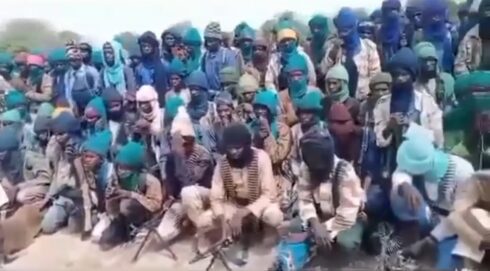Strained relations between Nigeria and Niger, exacerbated by Niger’s 2023 coup, have provided fertile ground for a new threat—an armed group called Lakurawa. Operating in northwestern Nigeria and across the Niger border, the group poses significant challenges to the region already plagued by insecurity. Here’s a comprehensive look into the emergence, operations, and implications of Lakurawa.
Origins and Emergence of Lakurawa
Lakurawa’s roots trace back to Mali, a Sahelian nation destabilized by transnational armed groups like Jama’at Nusrat al-Islam wal-Muslimin (JNIM) and ISIL affiliates. Nigerian military officials believe Lakurawa fighters are connected to these Malian groups but have since settled along the Nigeria-Niger border, integrating into local communities by marrying residents and recruiting youth.
Initially, the group emerged not as a threat but as a solution to banditry in Sokoto State. Around 2016, local leaders in Gudu and Tangaza invited the Lakurawa fighters to help repel armed bandits terrorizing rural communities. Though initially effective in neutralizing banditry and kidnappings, Lakurawa soon turned on their hosts, culminating in the murder of one of the leaders who had originally enlisted their help. This betrayal marked the group’s transformation into a dangerous and autonomous armed faction.
Membership and Leadership Structure
Lakurawa is believed to comprise fighters aged 18 to 50 who predominantly speak Fulfulde, Hausa, and Arabic—languages common among the Fulani ethnic group spread across West Africa. Their cultural and linguistic integration into local communities has complicated efforts to combat the group.
The Nigerian military has identified key figures within the group, including Abu Khadijah, Abdulrahaman (Idi), Dadi Gumba, Muhammed Abu, and Usman Shehu. These individuals, among others, are now wanted for orchestrating violent attacks on villages and facilitating the group’s expansion.
Strained Nigeria-Niger Relations and Lakurawa’s Expansion
The July 2023 coup in Niger further strained relations between Abuja and Niamey, disrupting long-standing joint military patrols along their shared border. This breakdown in collaboration has created a vacuum, allowing Lakurawa to strengthen its presence and escalate attacks in both countries.
According to officials, the group’s expanding influence underscores the broader regional challenges, as border communities suffer from weak governance and insufficient security infrastructure. This lawlessness has emboldened not just Lakurawa but other armed groups, contributing to a surge in violence, kidnappings, and instability in the region.
Growing Threat to National and Regional Security
Lakurawa has rapidly evolved into a significant threat, responsible for attacks that have claimed dozens of lives across Sokoto and Kebbi states in Nigeria. The Nigerian army has acknowledged the group’s operations, highlighting the urgency of addressing this emerging security challenge.
The group’s activities also highlight the interconnected nature of regional insecurity in West Africa, where porous borders and weak state institutions allow armed factions to flourish. To effectively counter Lakurawa, experts argue for improved cross-border military cooperation, the revitalization of local governance structures, and increased community engagement to undermine the group’s recruitment and influence.
Lakurawa’s rise is a stark reminder of the complex security challenges facing Nigeria and its neighbors. As the group continues to exploit political instability and weak governance, a concerted effort involving regional collaboration and robust domestic policies is essential to stem the tide of violence and restore stability to the Nigeria-Niger border region.
What Do They Want
The Nigerian military’s announcement in November revealed that the motivation or ideology behind the Lakurawa group remains unclear. However, researchers working closely with affected communities suggest that the group promotes a radical version of Islam and seeks to establish a caliphate in the region.
In territories under their control, Lakurawa is believed to impose their own strict version of Islamic law. This imposition underscores their ideological ambition of governance, extending beyond just a violent insurgency to the establishment of a theocratic state.
What Have They Done?
Lakurawa has launched violent attacks on villages in both Nigeria and Niger, holding significant territory in several areas. In these regions, they impose taxes on cattle and enforce their authority through intimidation. Their influence extends to distributing money, farm tools, fertilizers, seeds, and water pumping machines to local communities, seemingly as a strategy to attract followers and gain grassroots support.
Monetary incentives also play a role in recruitment. Reports indicate that new recruits receive up to ₦1 million ($645), while informants earn smaller sums, around ₦10,000 ($6). This strategy has led to tragic consequences for villagers who resist cooperation. Lakurawa’s violence has left dozens dead, with one notable attack on November 9, 2024, in Nigeria’s Kebbi State claiming 15 lives in the Mera community.
How Is Nigeria Responding?
Tensions between Nigeria and Niger have hampered a unified response to the Lakurawa crisis. The 2023 military coup in Niger disrupted joint border patrols that had previously proven effective in dispersing the group. The resulting breakdown in cooperation allowed Lakurawa to regroup and escalate their attacks on communities along the border.
In response, Nigeria launched targeted military operations in late 2024. These included airstrikes on Lakurawa camps and ground assaults in northern states. However, the operations have not been without controversy. In December 2024, a military airstrike targeting the group in Sokoto State led to unintended civilian casualties when munitions storage sites triggered secondary explosions, killing 10 villagers.
What About Niger?
Niger’s military government has yet to disclose any specific operations against Lakurawa, leaving their response ambiguous. In December 2024, General Abdourahamane Tchiani, Niger’s military leader, accused Nigeria and France of sponsoring the group to destabilize his country. He claimed that Nigerian officials, including President Bola Ahmed Tinubu’s security adviser, were complicit in a conspiracy to maintain armed fighters in border areas for attacks on Niger.
These accusations come amidst strained relations between Niger and its former colonial ruler, France. While France has aligned itself with Nigeria’s leadership, Niger, alongside military-led Burkina Faso and Mali, has distanced itself from its former ally. Nigerian officials have dismissed Tchiani’s allegations as baseless, maintaining that Nigeria is focused on securing the region and combating insurgency.
The Lakurawa insurgency has become a significant security concern, exacerbated by regional tensions and geopolitical complexities. A unified and coordinated approach between Nigeria and Niger is critical to countering the group’s growing influence and restoring stability to affected areas.
Table of Contents
Discover more from OGM News NG
Subscribe to get the latest posts sent to your email.

